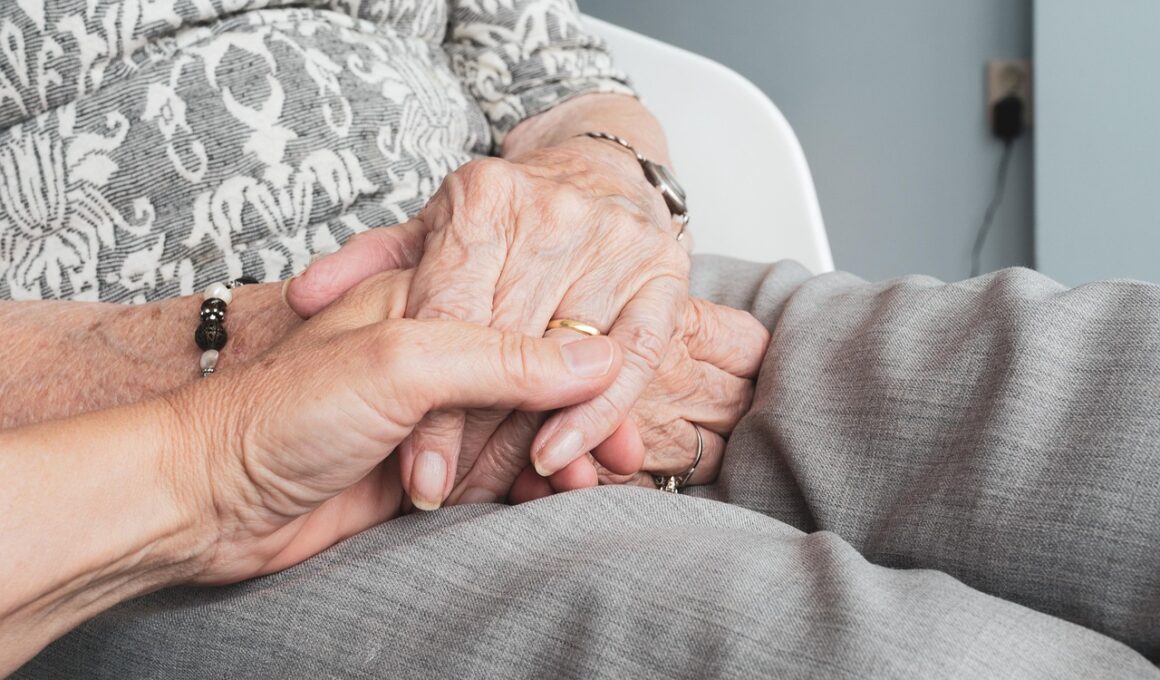How Senior Centers Are Promoting Self-Defense Programs
In times of increasing community concern regarding safety, senior centers play a vital role in fostering self-defense training tailored specifically for older adults. These programs are meticulously designed to address the unique challenges faced by seniors, helping them feel safer and more secure in their everyday lives. Through various techniques and strategies, participants learn vital skills essential for personal safety. Instructors focus on teaching effective methods that do not rely on physical strength, emphasizing using leverage and awareness. These methods aim to empower seniors by improving their self-esteem and building confidence in their abilities. Many senior centers also collaborate with local law enforcement agencies to create a more comprehensive safety curriculum. Workshops often include discussions about local crime statistics, providing context to the importance of such training. Also, these sessions foster a sense of community as seniors connect with one another, sharing experiences. The social aspect is as crucial as the physical training, creating bonds that may extend beyond classes. Seniors actively practicing self-defense also boosts their physical and mental health, ensuring holistic well-being. A safer community is beneficial for all residents, making self-defense programs essential in senior centers.
As the availability of self-defense programs increases at senior centers, many participants report feeling more empowered than ever in their ability to protect themselves. Through these programs, older adults learn both practical skills and strategies for preemptive safety. Instruction often includes situational awareness training, panic response techniques, and effective communication skills to defuse potentially threatening situations. Additionally, classes often integrate discussions about avoiding risky scenarios and recognizing warning signs. Together, this knowledge built on practice fosters a sense of independence among attendees. Older adults can manage unfamiliar surroundings while confident in their capability to respond appropriately if needed. Furthermore, many instructors emphasize the growing importance of self-defense beyond just physical confrontation. Emotional and mental resilience is equally vital, addressed through techniques for managing stress and anxiety. Engaging in these classes promotes healthy habits in movement, ultimately improving seniors’ physical fitness levels. A stronger body can significantly influence how confident an individual feels in various situations. Seniors who regularly attend these classes often report an enhanced confidence level in their interactions within the community. Thus, these benefits promote further participation, creating a positive feedback loop within the senior community. Self-defense training becomes an empowering resource for those who participate.
A Positive Environment for Learning
Self-defense classes at senior centers create a supportive atmosphere conducive to learning. Experienced instructors prioritize fostering a non-threatening environment where seniors can ask questions and express concerns without hesitation. This approach encourages open dialogues and bolsters confidence among participants. Moreover, camaraderie builds a supportive community, leading to lifelong friendships formed through shared experiences. Classes often consist of mixed skill levels, allowing participants to learn from each other and advance at their own pace. For many seniors, this collective understanding initiates a renewed sense of purpose. Instructors recognize that older adults bring diverse life experiences to the table, enhancing the learning environment. The incorporation of humor and storytelling often helps alleviate any anxiety, making self-defense relatable and engaging. Additionally, community-building activities paired with self-defense training contribute to participants leading well-rounded lifestyles. For instance, many centers organize social events and workshops, encouraging all members to explore self-defense, fitness, and well-being holistically. The interconnectedness of various activities further enriches the lives of seniors who participate. This sense of belonging and unity has a compounding effect; they feel encouraged to explore their capabilities beyond self-defense, improving overall quality of life. Learning alongside peers cultivates resilience within the community.
The logistics behind implementing self-defense training in senior centers showcase the commitment to positive community reinforcement. Organizing classes often involves staff training and finding qualified instructors who understand the unique needs of older adults. Often, centers invite local martial arts or self-defense instructors to facilitate the sessions, providing necessary expertise and community ties. This inclusion fosters relationships between community stakeholders, allowing knowledge and resources to circulate. Open lines of communication create strong partnerships between centers and safety professionals, enhancing program relevance. Offering self-defense classes is but one aspect of the multifaceted approach many senior centers adopt to maintain holistic wellness. Workshops on nutrition, mental health discussions, and fitness programs interlace seamlessly with self-defense offerings. Subsequently, seniors experience comprehensive support tailored to their needs. The adaptability of these programs reflects the ever-evolving landscape of societal needs in an unpredictable world. Many centers regularly seek feedback from participants to enhance class offerings and address any concerns raised. This approach reinforces a commitment to participant-centered learning and responsiveness to community dynamics. By evolving with community needs, senior centers ensure their self-defense programs remain relevant, helping prioritize seniors’ safety while promoting a sense of belonging.
The Role of Technology
Technology increasingly plays a paramount role in facilitating self-defense training for seniors. From online resources to apps designed for personal safety, seniors are becoming more informed about their environment and safety tools. Many senior centers have begun incorporating technology into their training sessions to further enhance their self-defense programs. For instance, virtual demonstrations allow seniors to practice techniques with the guidance of trained instructors without ever leaving home. During instances of inclement weather, virtual classes can keep members engaged and informed. This approach not only increases participation but also allows for flexibility within training schedules. Interactive technology fosters deeper engagement and enhances the learning experience, making self-defense training more accessible for those who might have mobility issues. Wearing devices such as safety alarms or incorporating mobile app recommendations enhances personal safety beyond training. Instructors recommend using safety-focused applications to track location and connect with loved ones. Integrating technology also teaches seniors to be aware of potential threats in their surroundings, aiding mental preparedness. As technology evolves, senior centers continue adjusting their strategies to remain relevant and effective, showcasing the necessary blend of tradition and modern innovation to enhance self-defense training and safety awareness.
Feedback and outcomes from participants provide critical insights into the success of self-defense programs at senior centers. Many seniors who actively engage in these classes express feelings of increased confidence and overall empowerment in daily life situations. As they learn new techniques, they also build self-reliance, which translates into lower levels of anxiety and a greater sense of personal safety. Data collected through surveys and informal discussions indicate that seniors feel connected to their communities and more aware of their surroundings. The tangible skills obtained from self-defense training often translate into changing behaviors in social situations as well. Increased awareness can lead to a heightened sense of vigilance and caution when exploring unfamiliar places. Participants often report social benefits, including increased opportunities to meet like-minded individuals and cultivate friendships. Moreover, the support network established through these training sessions promotes sharing of personal safety experiences and challenges. Older adults can share stories and strategies, validating their feelings and offering new insights. The lasting friendships formed sometimes extend beyond self-defense boundaries, creating completely new social circles among seniors. Testimonials reveal that the sense of community within these programs significantly impacts overall well-being, emphasizing the importance of engaging environments that foster safety and support.
Looking Ahead
As more senior centers recognize the importance of self-defense training, there is a growing commitment to expanding program offerings and enhancing community impact. Many centers have begun to utilize grant funding to create specialized courses addressing specific challenges seniors face today. For example, programs centered around bullying retention within assisted living facilities or workshops focusing on personal safety during travel are increasingly common. Continuous improvement strategies and partnerships with volunteer organizations promote constant innovation and improvement in offerings. Senior centers are proving to be vital resources for vulnerable adults, ensuring they feel secure in their independence and freedom. The future of self-defense training is promising, with a collaborative effort from various stakeholders to address senior concerns. As circumstances change, ongoing training emphasizes adaptability, with a commitment to keeping programs relevant. Community investment assists in addressing the diverse needs of seniors, ensuring inclusive participation. Qualitative feedback underscores a sense of urgency for addressing these issues within aging populations. Addressing personal safety not only benefits seniors but enhances community harmony as well. Promoting self-defense awareness builds stronger communities overall, impacting the well-being of all residents through supportive, safe environments conducive to personal growth, connection, and empowerment.
In summation, self-defense training at senior centers embodies a holistic approach to safety, wellness, and community building. These programs empower older adults to enhance their confidence, independence, and social connections through ongoing engagement in self-defense practices. Moving forward, commitment to innovation and collaboration will remain vital in addressing the evolving landscape of senior safety. As communities collectively invest in these invaluable programs, invaluable skills are shared that expand beyond personal protection. The positive ripple effects transformed by self-defense training foster inclusion and interconnectedness across diverse communities. resulting in bonds formed through shared experiences and skills. Increased awareness not only leads to hyping physical fitness but boosts emotional well-being while fostering meaningful relationships. Consequently, a culture of safety emerges, strengthening the community as a whole and promoting resilience among vulnerable populations. Senior centers stand at the forefront of this movement, committed to lifelong learning and engagement. Ultimately, as effective self-defense programs continue to flourish, they shift perspectives on aging by promoting positive attributes associated with growing older. Self-defense training encapsulates far more than just physical prowess; it represents maturity, adaptation, and respect for oneself and others. The future is bright with possibilities for seniors eager to learn and grow.


